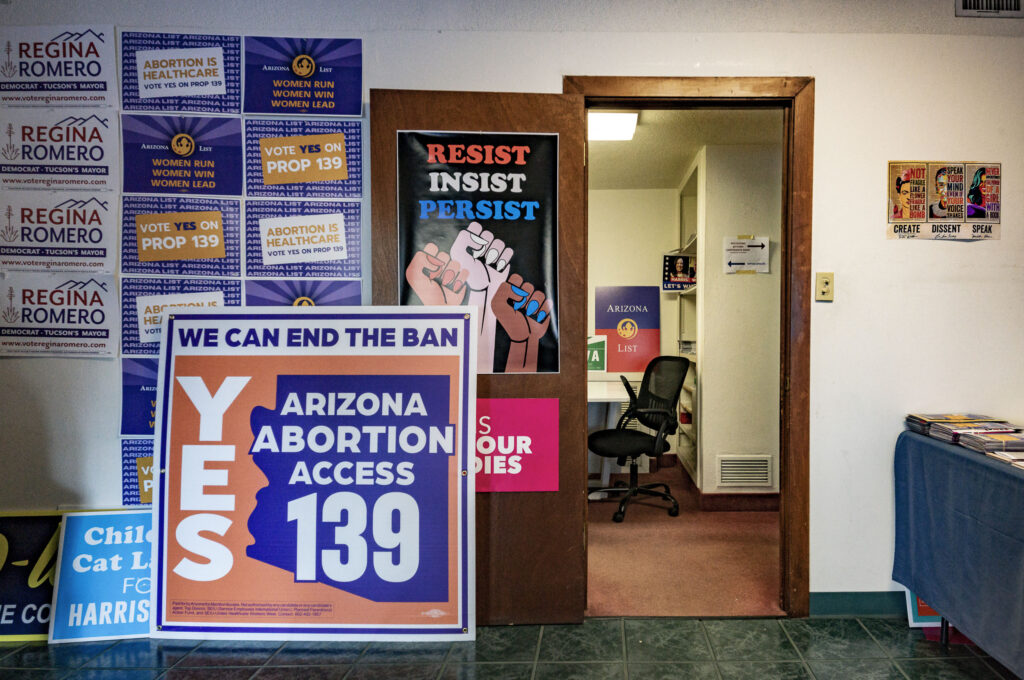Arizona placed abortion access on the ballot this fall, and the state passed the measure, enshrining the right to choose into the state’s constitution.
The Grand Canyon State added the proposal to ballots after certifying 577,951 signatures calling for the vote, a number far beyond the total required to put the question before voters. The coalition Arizona for Abortion Access said that the total marked the most signatures for a citizens initiative in state history, according to NPR.
The state will now permit abortions until a fetus can survive outside the womb, typically around 24 weeks into a pregnancy, with exceptions to save the mother’s life or protect her body.
What Was Abortion Access Like in Arizona?
The fight for abortion access in Arizona has followed a convoluted and difficult road over the past few years.
Arizona’s abortion laws caused much confusion since the Supreme Court’s Dobbs ruling, with the state initially adopting a near-total ban from 1864, which the state then overrode in September, with H.B. 2677.
The 19th century law, which existed before Arizona even obtained statehood, had no exceptions for rape or incest and only allowed abortion if the mother’s life was in jeopardy. The state Supreme Court upheld the law and wrote in the majority opinion that doctors and health care workers could face prosecution and jail time of up to five years if convicted of aiding or performing an abortion.
H.B. 2677, which Arizona Democratic Governor Katie Hobbs signed in May, repealed the 1864 law with support from the legislature’s Democrat minority and some defectors from the Republican majority.
Women seeking an abortion require an ultrasound at least 24 hours before the procedure. Minors must have parental consent or authorization from a state judge, with exceptions for rape, incest or risk to life, according to the Associated Press.
What Is Arizona’s Proposition 139?
The measure to enshrine abortion in Arizona’s state constitution, Proposition 139, sought to add abortion as a fundamental right. The law relies on fetal viability as a major distinction.
The only way the state can intervene in an abortion is through “compelling state interest,” defined as a law or regulation enacted for the limited purpose of improving or maintaining the health of the individual.
How Popular Was the Abortion Measure?
With around 54 percent of the vote counted, Arizona passed Proposition 139 with over 62 percent support, amassing over 1,130,000 votes to back the repeal.
Read the full article here
